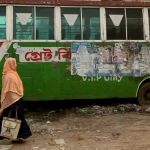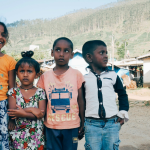“What we need is holistic intervention—legal, policy, and societal transformation, with changes in attitudes, perceptions, and behaviours.” Justice Hari Phuyal, Supreme Court of Nepal
In September, iProbono delivered a series of impactful events as part of our broader mission to advance Economic, Social, and Cultural Rights (ESCR) and commitment to strengthening access to Sexual and Reproductive Health Rights (SRHR) in Nepal. These on-ground initiatives bolster ongoing litigation and advocacy efforts, contributing to the broader movement for decriminalising abortion in Nepal.
As part of the #DesignTheLawNepal project, a toolkit on Sexual and Reproductive Health Rights in Nepal was launched by senior members of the judiciary in Kathmandu, Dr Mara Malagodi, Law and Policy Forum for Social Justice, and iProbono. In his keynote address Honourable Kalyan Shrestha, former Chief Justice, Supreme Court of Nepal who was instrumental in adjudicating landmark cases on reproductive rights, said “Toolkit is a new thing for me. This could be a way to explain the law in simple terms to the general people. It’s a good tool to make people aware of their rights that they weren’t previously aware of. It is important to fill the gap between law formulation and law dissemination.” The toolkit, which features illustrations by Nepali artist Kripa Joshi, makes complex legal decisions and policies about SRHR easy to understand and accessible to all. Featuring comics that explain legal decisions, illustrated laws and fictional ‘personas’ that represent the lived experience of women who face different challenges in accessing sexual and reproductive healthcare, the aim is to use design to bring critical issues to life and make the law accessible.
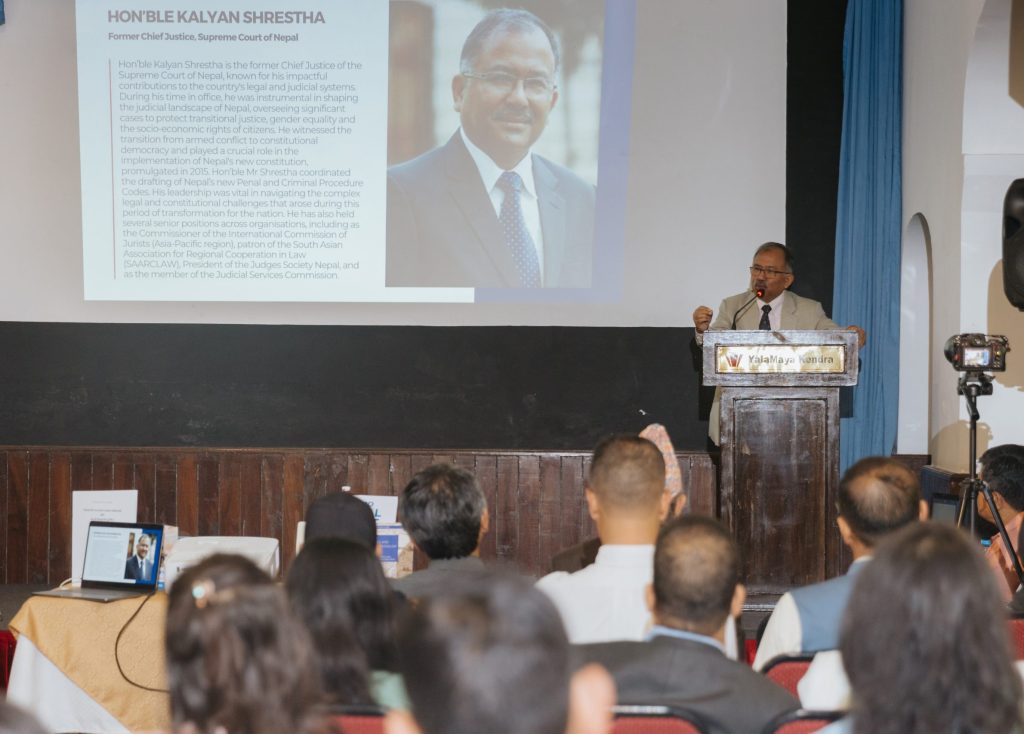
The English version of the toolkit is available free of cost on our website here. Part of the toolkit is currently available in Nepali and we will share the full Nepali version with our audiences soon.
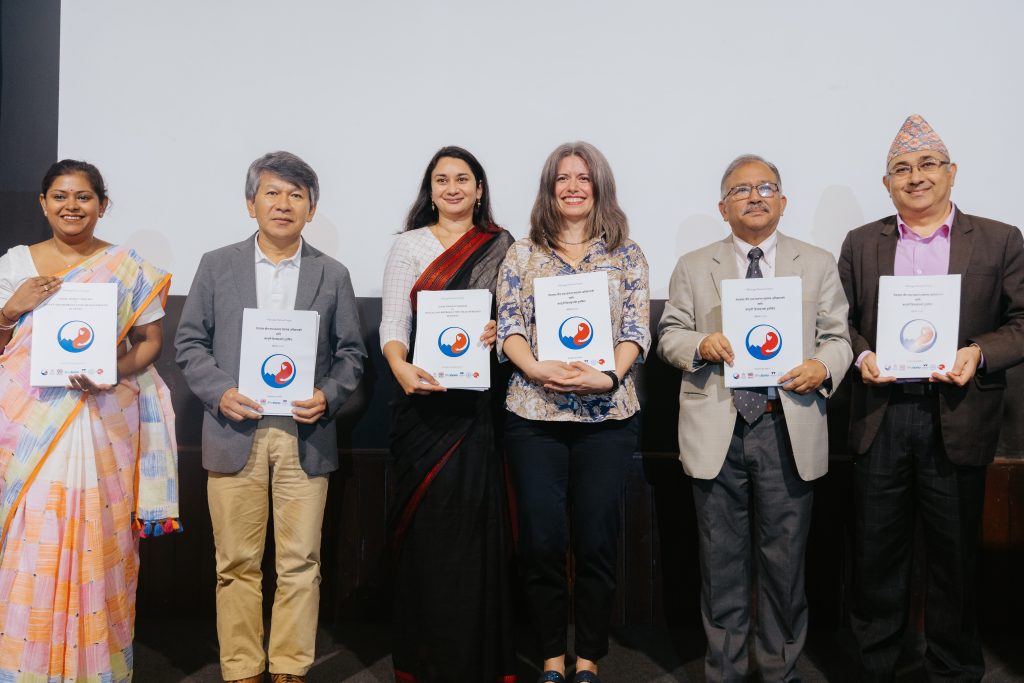
(From L-R) Radhika Saxena (Senior Program Manager for South Asia, iProbono), Prem Chandra Rai (Executive Director, Law and Policy Forum for Social Justice LAPSOJ), Mariam Faruqi (CEO, iProbono), Dr Mara Malagodi (Warwick Law School), Hon’ble Kalyan Shrestha, (Former Chief Justice, the Supreme Court of Nepal) and Hon’ble Justice Hari Phuyal (Justice, Supreme Court of Nepal) launch the toolkit.
The authors and designers of the toolkit were with us in person and virtually. Dr Mara Malagodi (Reader at Law, Warwick Law School), Emily Allbon (Director of Legal Design and Associate Professor) and Dr Sabrina Germain (Reader in Healthcare Law and Policy and the Associate Dean for Equality, Diversity and Inclusion) from City Law School, University of London explained how diverse stakeholders can use the material in practice. An interactive workshop was facilitated by iProbono’s Radhika Saxena (Senior Program Manager for South Asia), Supriya Roychoudhury (Research and Impact Director) and Roshani Regmi (Program Officer for Nepal). Participants included doctors working in women’s health, civil society, lawyers and other key stakeholders. Through group discussions and role-play activities, our team tested the material and planned a strategy to roll the toolkit out across Nepal with our participants.
Delivering the second keynote address, Supreme Court Justice Hari Phuyal highlighted that, “What we need is holistic intervention—legal, policy, and societal transformation, with changes in attitudes, perceptions, and behaviours. This toolkit is a promising step toward ensuring that stakeholders are well-versed with the law and that international and national commitments are upheld. Its accessible design allows individuals affected by the law to better understand their rights and obligations. I believe this unique approach has the potential to be replicated for other issues, raising legal awareness through effective messaging.”
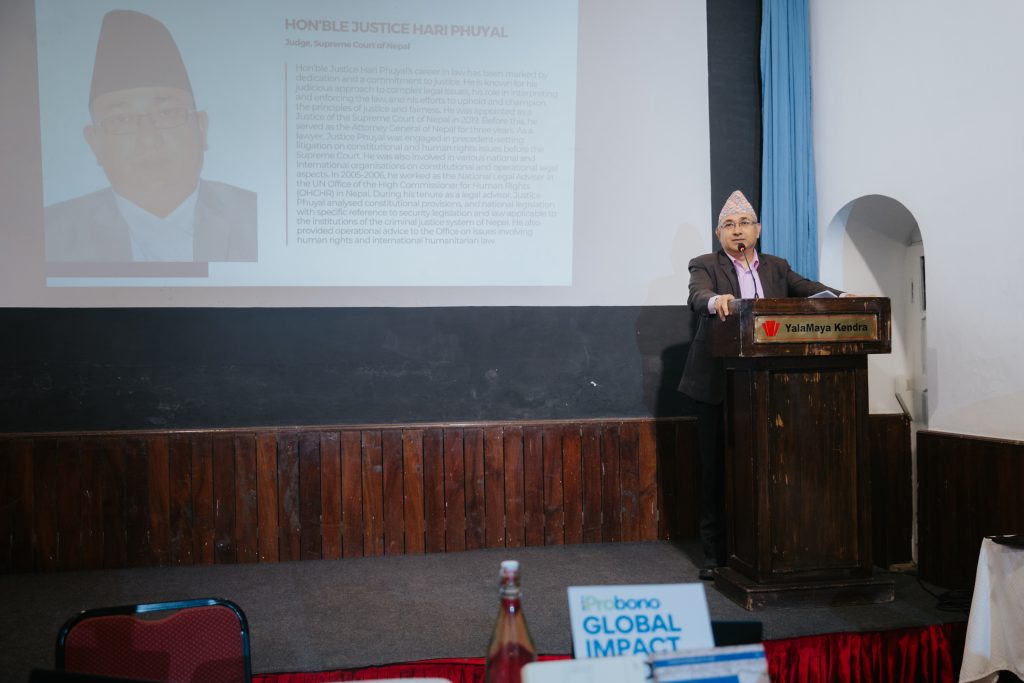
In tandem with the workshops and launch, an exhibition, ‘In Pursuit of a Just Society: A Visual Journey’, told the story of iProbono’s journey in Nepal in photographs. Curated by iProbono’s Communication and Advocacy Manager, Richa Oberoi, we also displayed artwork by Kripa Joshi. Prem Chandra Rai, Executive Director at LAPSOJ, described his experience, “I am very happy to see this journey through photos and how it reflects all our collective efforts. The photos take me back in time, and I feel as if I were there now.”
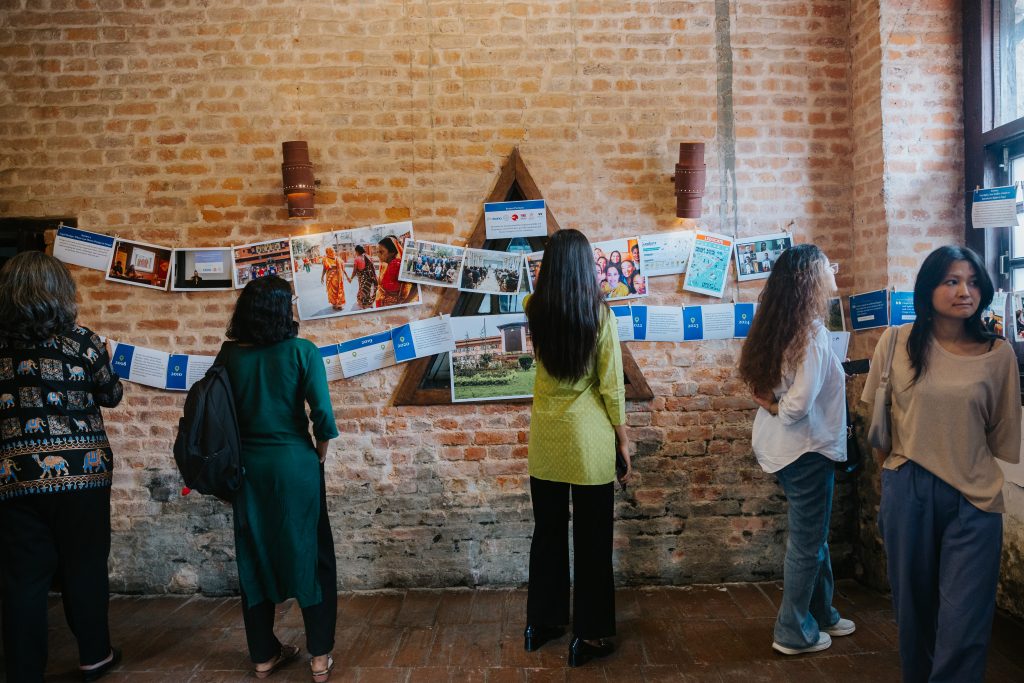
Despite bold laws on sexual and reproductive health, barriers to abortion access in the country persist. Our advocacy including a multi-stakeholder consultation inform our Public Interest Litigation (PIL) filed by iProbono’s lawyer Bandana Upreti before the Constitutional Bench of the Supreme Court of Nepal in 2021. The petition seeks amendments to existing legislation to secure reproductive rights for all Nepali citizens and has the potential to fully decriminalise abortion nationwide. Through the discussions, we gathered policy recommendations from service providers to improve abortion access in the country. While reflecting on the discussions, Raju Prasad Chapagai (Advisor and Mentor, ESCR Fellowship, iProbono) shared “(The session) explored multi-dimensional problems around lack of access to abortion and unpacked a set of measures that need to be adopted to address the problems.”
As we place the toolkit in the hands of the people of Nepal, we are confident that it will build awareness about reproductive rights. Radhika Saxena, iProbono’s Senior Program Manager for South Asia stated, “This toolkit is a powerful resource that aims to improve access to clear, accurate, and actionable information on SRHR in Nepal. By making legal information more accessible, we hope to empower individuals and communities to better understand and advocate for their rights. In particular, this toolkit, is an important step toward strengthening the ongoing movement to decriminalise abortion in Nepal, ensuring that reproductive rights are fully protected and that people can access the care they need without fear of stigma or legal consequences.”
*This event was co-organised by iProbono, Dr Mara Malagodi, University of Warwick, Dr Sabrina Germain and Ms Emily Albon at City Law School, University of London, and the Law and Policy Forum for Social Justice (LAPSOJ). The #DesignTheLawNepal Project has received financial and technical support from Advocates for International Development’s ROLE UK Programme and UKAid.
A special thanks to Yala Maya Kendra for hosting the launch of our Legal Design Toolkit on Sexual and Reproductive Health Rights and supporting iProbono over the past 6 years.


